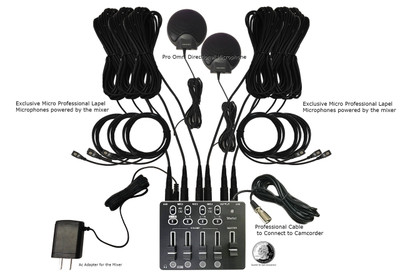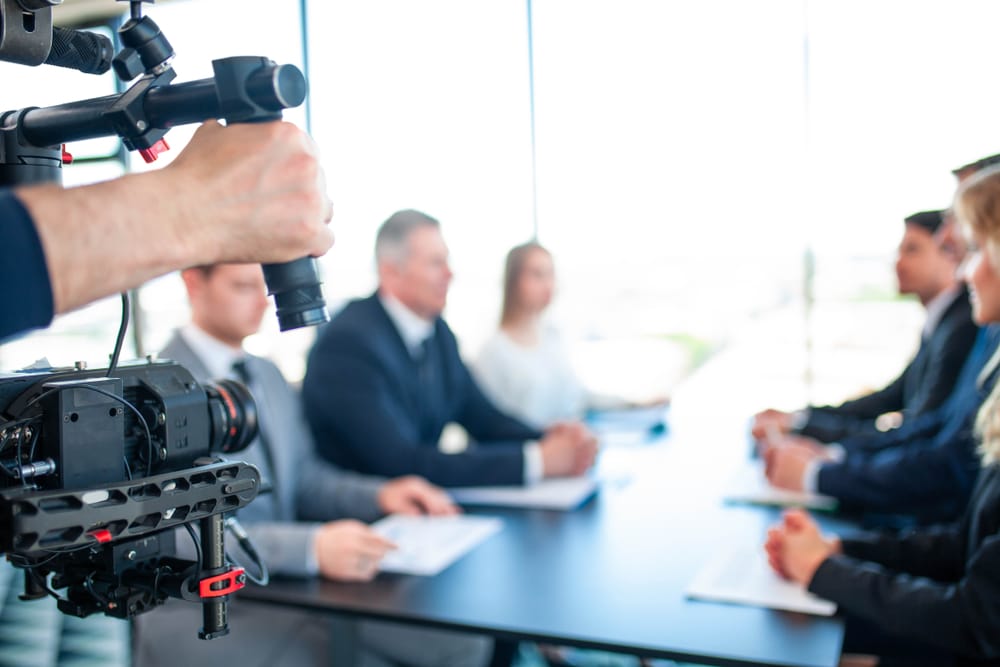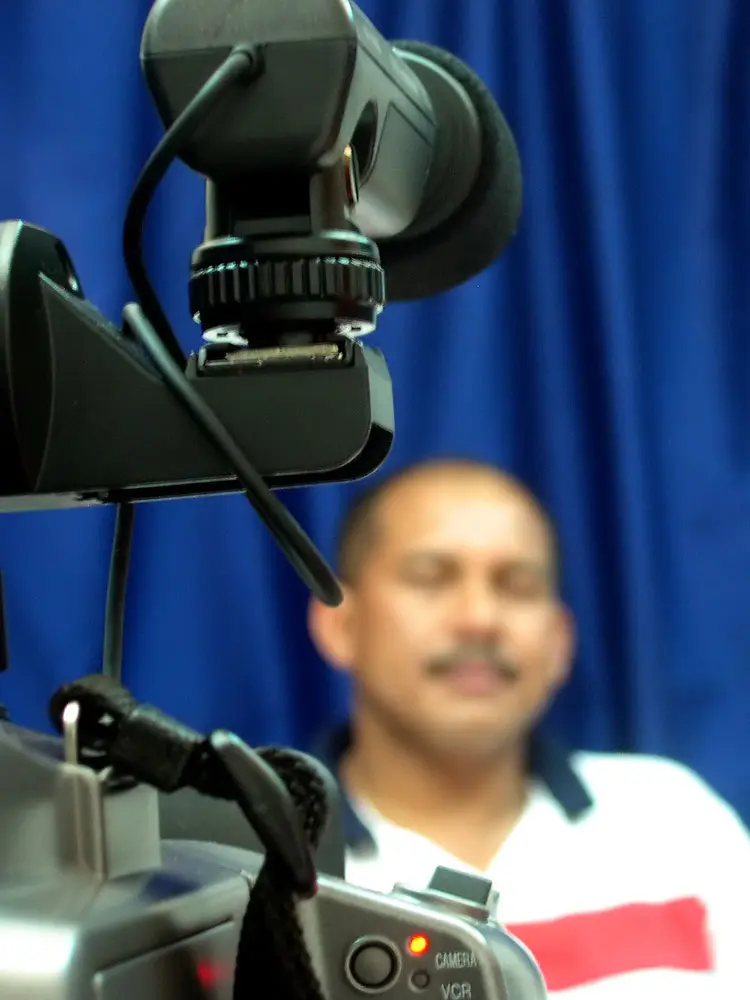The Importance of Lawful Video Depositions in Modern Legal Services: What You Need to Know
Lawful video depositions have actually ended up being important in today's legal landscape. They supply a multidimensional view of witness testimonies that standard transcripts merely can not match. By recording both verbal and non-verbal interaction, these depositions enhance the total understanding of a witness's integrity. The efficiency of video depositions pivots on different factors, consisting of compliance with lawful standards and best methods. Exploring these aspects reveals their real significance in contemporary legal services
What Are Legal Video Depositions?
Lawful video clip depositions serve as a vital tool in the litigation procedure. They entail tape-recording witness testimonies in a video style, recording both non-verbal and verbal interaction. This technique permits attorneys to document the temperament, expressions, and reactions of witnesses, offering a richer context for the testament. Typically conducted in a controlled atmosphere, these depositions are led by lawyers that ask inquiries while a court press reporter records the dialogue. The resulting video can be essential for trial preparation, as it allows attorneys to examine the credibility of witnesses and fine-tune their methods. In addition, lawful video clip depositions can be used in different legal contexts, ranging from civil conflicts to criminal cases. The visual and auditory aspects of video depositions enhance the presentation of proof, making it an important part in the modern-day lawful landscape. In general, they add substantially to the performance and performance of lawful proceedings.

Benefits of Video Depositions Over Traditional Methods
Video depositions provide countless advantages contrasted to conventional techniques of taking witness statements. One considerable advantage is the capability to catch both aesthetic and audio elements, supplying a more complete document of the witness's declarations. This twin layout improves clearness and permits lawyers to reference specific nuances during trial preparation. Furthermore, video depositions facilitate remote engagement, making it less complicated for witnesses who may be inaccessible for in-person appearances due to geographical constraints or health issues.Moreover, video depositions can quicken the total deposition procedure, reducing the time and prices linked with travel and logistics. They also boost availability, as videotaped depositions can be conveniently shared among lawful teams and referenced at any time. This comfort adds to much better situation monitoring and preparation. Generally, video clip depositions stand for a contemporary, reliable technique to gathering witness testaments, lining up with the developing needs of the lawful occupation.
The Duty of Body Language and Tone in Testimonies

In lawful video clip depositions, body movement and tone play crucial functions in communicating a witness's trustworthiness and dependability. Nonverbal signs can offer understandings right into a witness's mood, influencing just how their testimony is perceived. Understanding the effect of these aspects is important for lawyers and jurors alike when assessing the dependability of a testament.
Nonverbal Communication Insights
While verbal interaction is often highlighted in lawful testimonies, nonverbal hints such as body movement and tone play a vital function in sharing reliability and emotion. Viewers of depositions might note that a witness's position, motions, and face expressions can greatly affect assumptions of integrity. As an example, constant eye get in touch with might signify confidence, while preventing gaze can suggest dishonesty or pain. In a similar way, the tone of voice-- its pitch, quantity, and rate-- can pass on feelings of sincerity or uncertainty. Legal specialists must be in harmony with these nonverbal signals, as they frequently supply important context that enhances talked words. Recognizing these subtleties can enhance the efficiency of depositions and affect the outcome of legal process.
Psychological Tone Effect
The psychological tone conveyed throughout lawful testaments substantially affects just how a witness is perceived. Body language, vocal inflections, and facial expressions play crucial functions fit the story of a testimony. A witness displaying self-confidence through consistent eye contact and a calm tone can instill a sense of integrity and interaction. Conversely, signs of anxiousness, such as fidgeting or an unsteady voice, might bring about suspicion regarding their account. The subtleties of psychological expression can affect the interpretation of truths, making it essential for attorneys to recognize these cues. In video clip depositions, the visual and acoustic elements combine, emphasizing the value of psychological tone in sharing sincerity and reliability within the legal procedure.
Credibility and Dependability
An important consider developing integrity and credibility during testimonies exists in the witness's body language and intonation. Observers usually count on non-verbal cues-- such as eye get in touch with, position, and motions-- to examine a witness's genuineness. For example, a witness who preserves eye contact and shows open body movement might be perceived as more straightforward and reliable than one who avoids eye get in touch with or shows up shut off. Additionally, tone of voice plays a vital role; a constant, tranquil tone can strengthen the integrity of the testament, while variations in pitch or quantity might raise uncertainties. Eventually, the combination of body movement and vocal tone greatly affects exactly how a witness's declarations are obtained and analyzed in a lawful context.
Ideal Practices for Conducting Video Clip Depositions
Performing video clip depositions needs careful planning and execution to assure a efficient and clear presentation of statement. First, it is essential to pick a quiet, well-lit place to decrease interruptions and safe optimum video clip quality. The devices ought to be evaluated beforehand, including video cameras, microphones, and lights, to prevent technological issues throughout the deposition.Next, celebrations involved must review the layout and procedures beforehand, making certain that every person comprehends their duties. The deponent must be oriented on the procedure, consisting of how to respond plainly and concisely.Additionally, preserving a specialist disposition throughout the session is important. This includes avoiding talking over each other and confirming that all inquiries are directed appropriately. Lastly, it is essential to tape-record the deposition in a format that enables for simple playback and testimonial, preserving the stability of the testament for future use.
Legal Considerations and Compliance Issues
How do lawful considerations and compliance concerns influence the effectiveness of video clip depositions? Attorneys must navigate a complicated landscape of policies, making certain that video clip depositions stick to jurisdictional regulations and criteria. Compliance with legislations worrying privacy, consent, and videotaping techniques is crucial. As an example, getting explicit permission from all events included is necessary to prevent legal repercussions.Additionally, the admissibility of video clip proof in court can depend upon conformity with procedural requirements. Guaranteeing that the equipment used fulfills technological requirements is additionally essential, as low quality can undermine the deposition's reliability.Moreover, lawyers should understand any certain state regulations that regulate video depositions, as these can vary considerably. Failing to attend to these factors to consider can not just jeopardize the integrity of the deposition yet also affect the overall situation technique, inevitably affecting the client's lawful end results.
Just How Video Clip Depositions Influence Jury Understanding
While video depositions can function as effective tools in legal procedures, their influence on court understanding is considerable. The acoustic and visual components of video recordings offer jurors with a more extensive understanding of witness attitude, integrity, and psychological feedbacks. This multimedia strategy can improve the jurors' capacity to evaluate the dependability of testament contrasted to conventional text-based transcripts.Moreover, video clip depositions permit jurors to observe body language, intonation, and faces, every one of which can influence their analysis of the witness's statements. The presence of a witness on screen can humanize them, fostering compassion and connection, which may guide jurors' point of views. Alternatively, a witness that appears incredibly elusive or undependable on video might cause negative assumptions that affect a jury's decision. Inevitably, the vibrant nature of video depositions plays a vital role fit just how jurors interpret proof and reach their verdicts.
The Future of Video Clip Depositions in Legal Practice
As innovations in innovation continue to improve the lawful landscape, the future of video depositions is poised for substantial Resources development. Advancements such as expert system, virtual truth, and boosted video clip conferencing devices are expected to simplify the deposition procedure and enhance accessibility. Attorneys may make use of AI-driven analytics to evaluate witness reputation and instance strength extra effectively.Moreover, the combination of virtual truth can permit courts to experience immersive simulations of depositions, offering deeper context and understanding. In addition, the fad toward remote depositions is most likely to continue, offering higher adaptability for clients and attorneys alike.As remote job becomes increasingly normalized, video clip depositions official site will likely become typical technique, decreasing expenses and time constraints connected with standard techniques. In general, these technological innovations promise to improve the performance, performance, and accessibility of video depositions in lawful practice, ultimately transforming exactly how attorneys plan for trial.
Regularly Asked Questions
Exactly How Much Do Lawful Video Clip Depositions Normally Cost?

Can Video Depositions Be Used in Any Type Of Type of Instance?
Video clip depositions can be made use of in different kinds of cases, consisting of civil, criminal, and family law. Their flexibility permits lawyers to present witness testaments properly, adapting to the details requirements of different lawful situations.
What Devices Is Needed for a Video Clip Deposition?
To conduct a video deposition, crucial equipment includes a top notch camera, microphone, lights, and a trustworthy recording tool. Furthermore, a computer system with editing software may be essential for post-production and formatting the final video.
How much time Does a Typical Video Clip Deposition Last?
A normal video clip deposition lasts in between 2 to four hours, depending upon the intricacy of the instance and the number of questions presented. Extensive sessions might take place, but breaks are usually included for individual convenience.

Are Video Depositions Admissible in Court?
Video depositions are typically admissible in court, supplied they stick to lawful requirements and regulations of evidence. Their usage enhances quality and maintains witness statement, helping in the judicial procedure during hearings and trials. Legal video clip depositions have come to be vital in today's lawful landscape. Additionally, legal video depositions can be made use of in different legal contexts, ranging from civil disputes to criminal instances. In addition, video depositions promote remote engagement, making it easier for witnesses that might be not available for in-person appearances due to geographical restrictions or health and wellness issues.Moreover, video depositions can speed up the total deposition process, reducing the time and costs associated with traveling and logistics. Making certain that the tools made use of meets technical criteria is additionally essential, as poor quality can threaten the deposition's reliability.Moreover, attorneys this need to be aware of any type of specific state laws that regulate video clip depositions, as these can differ considerably. Furthermore, the pattern toward remote depositions is likely to linger, supplying greater flexibility for attorneys and clients alike.As remote work comes to be significantly normalized, video depositions will likely end up being conventional method, reducing expenses and time constraints associated with conventional techniques.